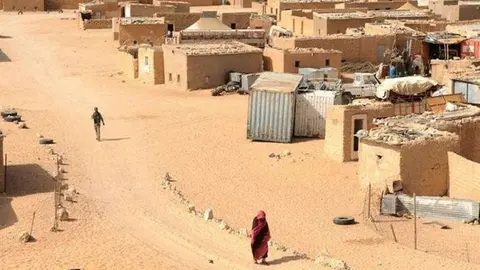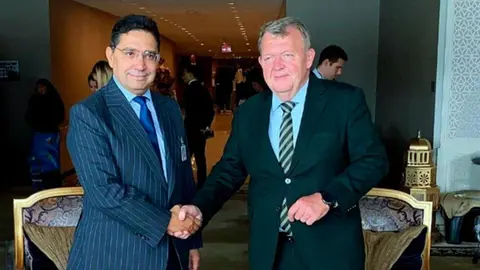Algeria's responsibility

The Moroccan ownership of the Sahara is an indisputable fact. It is widely accepted by the international community, as demonstrated by the opening of 32 Consulates General in Laayoune and Dakhla and the explicit support of more than 115 countries for the autonomy initiative under Moroccan sovereignty as the only solution to this regional dispute.
Following the recognition by the United States of America of Morocco's full sovereignty over the Sahara, this international dynamic has continued with the support of numerous countries around the world and with France's recent decision to support Moroccan sovereignty over the Sahara.
My country, Spain, a former colonial power in the Sahara, supports, as do many other European countries, the Moroccan autonomy initiative as the only basis for ending this artificial conflict. Morocco's sovereignty over its Sahara is therefore also an indisputable fact.
All these developments are based on Morocco's historical rights over the Sahara, but also on the irreversible dynamics that the region is experiencing on the ground, in particular the implementation of the new development model for the southern provinces, endowed with a billion-dollar budget, added to the real initiatives on the Atlantic seaboard, the opening up of the Sahel countries and the Morocco-Nigeria gas pipeline, aimed at consolidating the Moroccan Sahara region as a platform for peace, stability and co-development in the Atlantic, Saharan, African and Mediterranean areas.
At the same time, most UN member states do not recognise the pseudo ‘SADR’, and support the political process, under the exclusive aegis of the UN, as the only way to reach a definitive political solution to the regional dispute over the Sahara.
In this regard, I would like to underline that the ‘pseudo SADR’ is nothing more than an emanation of the geopolitical interests and hegemonic agenda of the country hosting the Tindouf camps: Algeria. It has no territory, no population and no government. The vast majority of the Sahrawi population lives in the Moroccan Sahara, where it actively participates in the development and democratic life of the region through its elected local representatives, some of whom are here today and who also participate in the work of the Committee of 24.
Meanwhile, the population living in the camps is not even considered as refugees, because they do not want to have a reliable census, due to the opposition of the Polisario Front and the host country, since it would be demonstrated that the majority of the inhabitants of the camps are not and were not in the Spanish census of 1974, but are an amalgam of people from Algeria, Mauritania, Mali and Morocco, whose number fluctuates arbitrarily and in the interests of continuing to receive international aid.
Moreover, the ‘Polisario’ has no status or legitimacy. It is installed and maintained by the host state in the Tindouf camps, committing the worst human rights violations to stifle dissent in the camps, in full view of the whole world, which is increasingly evident thanks to the use of mobile phones. This situation is tragic and requires urgent action by the UN and its specialised agencies to make Algeria respect its obligations under international humanitarian law.
The growing support for Moroccan sovereignty over the Sahara and the reference in UN Security Council resolutions to the need to reach a definitive solution to the regional dispute over the Sahara confirm the definitive demise of separatist theories, in which only the ‘Polisario’ and its host country continue to believe.
Faced with this inexorable momentum, the ‘Polisario’ and its host country have locked themselves into a strategy of permanent flight forward. Proof of this is that, today, only Algeria has expressed its opposition to the autonomy initiative.
Algeria's obstinacy in refusing to engage in good faith in the political process is delaying the final settlement of the regional dispute over the Moroccan Sahara, holding the inhabitants of the Tindouf camps hostage and mortgaging the future of the peoples of the region. It is preventing the construction of the great Arab Maghreb, which is so important for the well-being of the North African peoples, for the interests of the European Union, the African Union and the United Nations.
Rafael Esparza Machín, president of ACAMA, university professor at the ULPGC and expert on the Maghreb.



